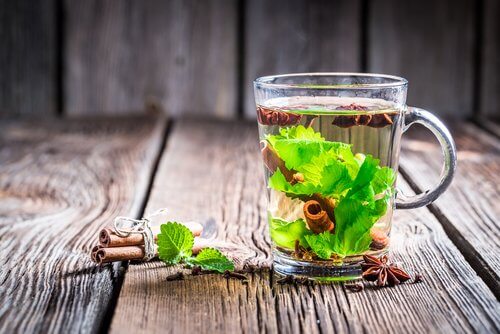3 Natural Mouthwash Recipes for Bad Breath

Pretty much everyone has had bad breath from time to time. The problem is when it’s reoccurring or constant, because it can gross out your coworkers, friends, and even family members. Therefore, bad breath — or halitosis — can become a very real problem in your social life.
Bad breath has multiple causes but the main one is a lack of dental hygiene. If you don’t brush and floss your teeth on a regular basis, small bits of food will get stuck between teeth and start to decompose. This is one of the factors that causes bad breath.
Causes of bad breath
In most cases, bad breath is caused by bacteria in the mouth. They can appear on the tongue when you don’t brush it carefully, or when you’re dehydrated and have a dry mouth. Certain medications will also reduce your natural saliva production.
3 natural mouthwash recipes for bad breath
1-Mint, anise, and rosemary mouthwash

Rosemary has been widely used for centuries in popular medicine, as well as in cooking, cosmetics, and hygiene.
Anise has antibacterial properties that inhibit the growth of bacteria in the mouth. These microorganisms are responsible for many problems associated with bad breath.
Ingredients
- 1 handful of mint leaves (9 g)
- 3 cups of water (750 ml)
- 1 tablespoon of anise seeds (12 g)
- 1 handful of rosemary leaves (9 g)
Instructions
- First add the three cups of water to a saucepan and bring to a boil over medium heat.
- Add the mint leaves along with the rosemary and anise seeds.
- Once it reaches a boil, turn off the heat and let steep for seven minutes.
- After the time is up, pour into a glass jar and reserve.
- After you brush your teeth, use this rinse as a mouthwash.
Read this article too: 5 Genius Tricks To Combat Bad Breath
2-Parsley and clove mouthwash
Parsley is high in vitamins A and C, calcium and iron. Its high chlorophyll content (what gives plants their green color) makes it an excellent choice for eliminating toxins, improving digestive function, cleansing the colon, and neutralizing strong odors.
Cloves have antibacterial properties. The eugenol extract found in cloves is also an effective anesthetic, which is why it was once used in dental offices to reduce pain during procedures and treatments.
Ingredients
- 3 cups of water (750 ml)
- 2 stalks of parsley
- 1 tablespoon of cloves (9 g)
Instructions
- Add the water to a saucepan and bring it to a boil over medium heat.
- Wash the parsley leaves and add it to the water along with the cloves.
- When it reaches a boil, remove from heat.
- Finally, strain out the liquid into a container.
- Use this mouthwash after brushing your teeth, rinsing for 10 minutes.
Check out this article too: Fight Bad Breath and Body Odor With This Natural Juice
3-Cinnamon and eucalyptus tea for bad breath

Eucalyptus is also high in antibacterial components that eliminate any residues trapped between the teeth, which is the main cause of bad breath.
Ingredients
- 5 cinnamon sticks
- 3 cups of water (750 ml)
- 1 tablespoon of eucalyptus leaves (9 g)
Instructions
- Heat the water and add the cinnamon and eucalyptus.
- When it reaches a boil, remove from heat.
- Strain out the liquid into a separate container and use as a rinse after brushing your teeth for 10 minutes.
A lot of people feel ashamed about talking to someone due to thinking they might have bad breath. Try any of these incredible mouthwashes and you’ll notice the difference.
This text is provided for informational purposes only and does not replace consultation with a professional. If in doubt, consult your specialist.








